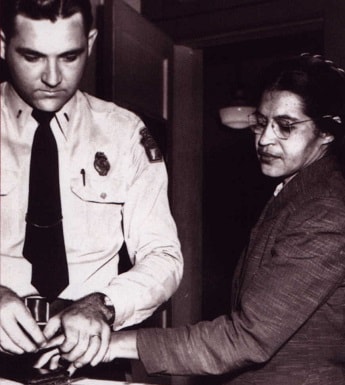Introduction - Civil Rights Movement Events
On this page is a list of some of the most important events of the Black Civil Rights Movement of the 1950s and 1960s. This era saw great strides forward in the fight for the civil rights of African-Americans. Some of the listed events greatly helped the movement, like the signing of the Civil Rights Act of 1964, and other events, like the assassination of Martin Luther King Jr., were terribly tragic. With each event are a list of interesting facts including when the event occurred, where it occurred, why it is considered important, and how it affected the Civil Rights Movement. This information is written for both adults and kids, and should serve as a useful source for Black History Month reports.Click here for a great selection of Amazon.com books about the Civil Rights Movement.
List of Important Civil Rights Movement Events
Brown vs Board of Education U.S. Supreme Court Decision (1954)
- The U.S. Supreme Court made its decision on the Brown vs Board of Education case on May 17th of 1954.
- The ruling ended legal segregation in public schools.
- This decision overturned the 1896 U.S. Supreme Court decision in Plessy v. Ferguson which established the separate but equal doctrine.
Rosa Parks Arrest in Montgomery, Alabama (1955)
- On December 1st of 1955, Rosa Parks was arrested for civil disobedience for refusing to give up her seat on a city of Montgomery, Alabama public bus to a white passenger.
- Her arrest led directly to the Montgomery Bus Boycott which resulted in desegregation of Montgomery buses in 1956.
- Rosa Parks has been called "the first lady of civil rights" and later in life was awarded the Presidential Medal of Freedom, and the Congressional Gold Medal, along with numerous other honors.
The U.S. Congress Passes the Civil Rights Act of 1957 (1957)
- This Act was passed by the U.S. Congress on September 9th of 1957.
- The purpose of this Civil Rights Act was to ensure that black Americans could exercise their constitutional right to vote.
- Many areas of the south had set up discriminatory voter registration rules and voting laws, like poll taxes, for the purpose of making it difficult for African- Americans to vote. This Civil Rights Act gave the federal government the power to oversee the voting process to make sure states had fair practices.
Greensboro Sit-Ins (1960)
- On February 1st, 1960 4 black students sat at the white only lunch counter at the Woolworth store in Greensboro North Carolina starting the Greensboro Sit-Ins.
- This was a planned event to protest the discriminatory practice of separate lunch counters for blacks and whites.
- The four men refused to leave and stayed until the store closed; and returned the next day.
- Similar sit-ins soon spread to numerous cities in the south; eventually leading to many stores changing this practice.
March on Washington and Martin Luther King, Jr's "I Have a Dream" Speech (1963)
- The March on Washington was an organized event in Washington D.C. where thousands of people peacefully gathered to call for civil rights for African-Americans.
- The event started on August 27th of 1963; the next day Martin Luther King, Jr. delivered his famous "I Have a Dream" speech in front of the Lincoln Memorial.
Civil Rights Act of 1964 (1964)
- This important Act was signed into law by President Lyndon B. Johnson on July 2nd of 1964.
- This law made it illegal to discriminate based on race, color, national origin, religion, or gender.
24th Amendment to the US Constitution Ratified (1964)
- Many southern states in the U.S. had implemented poll taxes in order to create a barrier preventing poor blacks from voting. Many African-Americans were living in poverty and could not afford to pay the tax which was required to vote in federal elections in many southern states.
- The 24th Amendment of the United States Constitution was ratified on January 23rd of 1964.
- The purpose of the amendment was to protect the voting rights of black people.
Bloody Sunday - Selma, Alabama (1965)
- Bloody Sunday was an event that took place during one of the three Selma to Montgomery marches in 1965 which had been organized to protest the murder of Jimmie Lee Jackson by an Alabama state trooper at an earlier protest and to protest for black voter registration rights.
- After the demonstrators refused to disperse at the Edmund Pettus Bridge in Selma Alabama the police and Alabama State Troopers attacked them using night sticks and tear gas; over 50 people were seriously injured.
- This event opened the eyes of many white Americans to the horrors of discrimination and the treatment of black citizens.
Voting Rights Act of 1965 (1965)
- U.S. President Lyndon Johnson signed this act into law on August 6th of 1965.
- The law was aimed at eliminating legal barriers that prevented or made it difficult for African American citizens to exercise their right to vote.
- Many historians regard this law to be the most effective civil rights law ever enacted in the United States.
Martin Luther King Jr. Assassinated (1968)
- Martin Luther King Jr. was assassinated on April 4th of 1968; shot at the Lorraine Motel in Memphis, Tennessee.
- King was in Memphis to support a strike of black sanitation workers who were protesting discriminatory wages and working conditions.
- James Earl Ray was captured and pleaded guilty to the murder.
